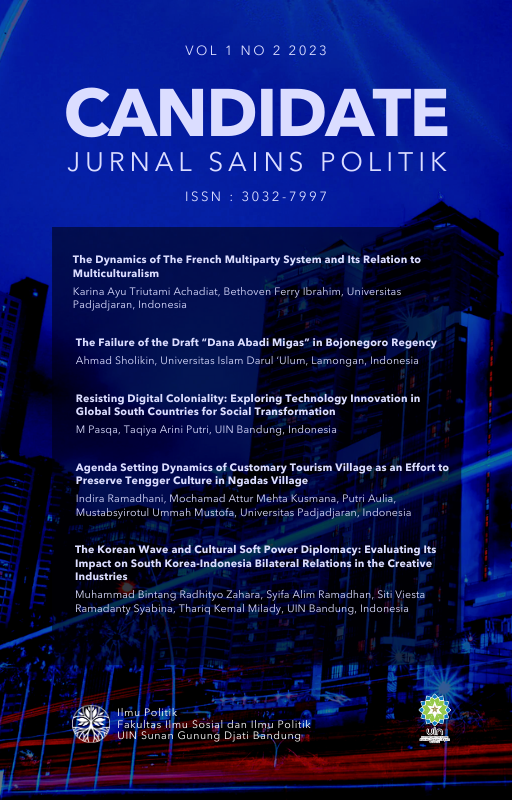Revitalizing the Spirit of the People'S Cultural Institute: Art as a Medium for Social and Political Activism of Students on Campus
DOI:
https://doi.org/10.15575/candidate.v2i1.44584Abstract
This study explores the enduring legacy and contemporary relevance of cultural activism initiated by the People's Cultural Institute (Lekra), established in Indonesia during the politically dynamic post-independence era. Lekra pioneered the integration of socialist realism into artistic practice, systematically utilizing arts and culture as instruments for socio-political critique, consciousness-raising, and mobilization of marginalized communities. Recognizing growing political apathy among contemporary university students, this research examines the strategic adaptation of Lekra's principles by SRD (Unit Kegiatan Mahasiswa Seni Rupa dan Desain) at UIN Sunan Gunung Djati Bandung. Employing a qualitative descriptive approach, the research analyzes primary archival sources from Lekra's historical documentation (1950–1965), alongside in-depth interviews with current SRD leaders and historical cultural activists. The findings demonstrate how SRD successfully revitalizes Lekra’s activist legacy through structured cadre formation, ideological education, and socially engaged collective artistic projects. SRD’s cultural activism offers a credible and engaging alternative to traditional student political structures characterized by pragmatism and disengagement. By emphasizing realism, collective artistic expression, and disciplined ideological clarity, SRD effectively bridges historical and contemporary socio-political realities, stimulating renewed political consciousness among students. Ultimately, this study argues that structured cultural activism, rooted in Lekra’s historical methodology and principles, remains critically relevant and strategically significant for overcoming student apathy, revitalizing democratic participation, and fostering long-term socio-political transformation within contemporary Indonesian university campuses.
Downloads
Published
How to Cite
Issue
Section
License
Copyright (c) 2024 Silma Hanifa, Yudi Juniadi

This work is licensed under a Creative Commons Attribution-ShareAlike 4.0 International License.
Authors who publish with this journal agree to the following terms:
- Authors retain copyright and grant the journal right of first publication with the work simultaneously licensed under a Creative Commons Attribution-ShareAlike 4.0 International License that allows others to share the work with an acknowledgment of the work's authorship and initial publication in this journal.
- Authors are able to enter into separate, additional contractual arrangements for the non-exclusive distribution of the journal's published version of the work (e.g., post it to an institutional repository or publish it in a book), with an acknowledgment of its initial publication in this journal.
- Authors are permitted and encouraged to post their work online (e.g., in institutional repositories or on their website) prior to and during the submission process, as it can lead to productive exchanges, as well as earlier and greater citation of published work (See The Effect of Open Access).





.jpg)



